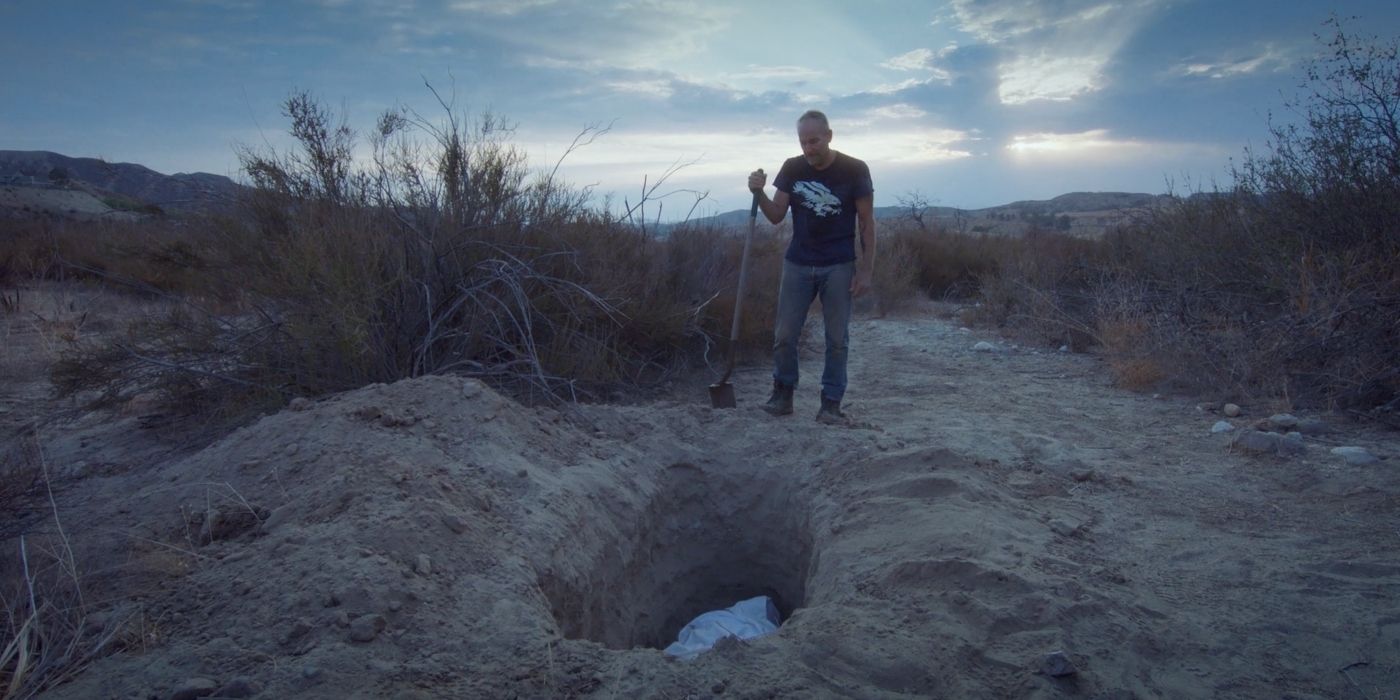Summary
- Progressive take on sex work, challenging stereotypes in LGBTQ+ cinema.
- Offers a nuanced and empowering perspective on queer bodies, sex, and intimacy.
- Beautiful portrayal of a heartfelt and tender relationship between older and younger gay men.
Finnish filmmaker Mikko Mäkelä proved himself a promising gay movie director when his debut film, A Moment in the Reeds, first premiered at the London Film Festival in 2017. A subtle, yet no less sensual, queer romance about a Finnish university student, who spends one summer renovating his father’s lakehouse, and a Syrian refugee hired to help out. A Moment in the Reeds foremost demonstrated Mäkelä’s intentionality as a director. Between casting gay actors to play gay characters and examining Finland’s political landscape at the time, there was a desire for honesty in his film that, in hindsight, would be a defining feature of late-2010s LGBTQ+ cinema.
Sebastian is Mäkelä’s sophomore feature, which had its premiere at this year’s Sundance Film Festival. The film follows a London-based writer on the rise, Max (Ruaridh Mollica), who is on the cusp of publishing his highly anticipated debut novel. Unbeknownst to his family, friends, and editor, the novel is inspired by his secret life as a sex worker named Sebastian. This line of work may have started as a means to an end, but the more Max engages with this career and the array of clients he encounters along the way, the more his relationship with sex (and, by extension, himself) begins to change.
Reclaiming a Harmful Queer Cinema Trope
Sebastian (2024)
- Release Date
- January 21, 2024
- Director
- Mikko Makela
- Cast
- Ruaridh Mollica , Hiftu Quasem , Ingvar Sigurdsson , Jonathan Hyde , Lara Rossi , Leanne Best
- Runtime
- 1h 50m
- Writers
- Mikko Makela
- Progressive take on sex work
- Updates harmful LGBTQ+ stereotypes
- One relationship in particular is heartfelt and tender
- Slow to make its point
- The central performance is arguably too restrained
LGBTQ+ cinema — particularly when it comes to movies about transgender characters — has a lengthy history of telling stories with and/or about queer sex workers. Think: classic films like Gus Van Sant’s My Own Private Idaho and modern efforts like 2015’s Tangerine and even Ponyboi (which also made its premiere this year at Sundance). With Sebastian, Mäkelä is certainly using old crayons to draw a new picture, but this isn’t necessarily a bad thing.
Indeed, Mäkelä leans on the canonical films of the sex work subgenre of LGBTQ+ cinema and builds on it by taking a decidedly modern approach. Max, for example, meets his clients via a third-party app on his phone. Additionally, he treads along the same emotional pathways as other sex-worker characters have before him: nervous at first, but trying not to seem like it, he’s a fish out of water in the homes, hallways, and hotel corridors of the men who hire him. There’s an unease and uncertainty about what he’s doing whenever he meets a new client, aware of the risks involved.

Thelma Review: June Squibb Could Be the Next Tom Cruise [Sundance 2024]
June Squibb channels her inner Tom Cruise in Thelma, an action comedy about a grandmother who goes to great lengths to get back at her scammers.
Most significantly, of course, Sebastian offers a more nuanced and progressive perspective on sex work, positioning it more as the entrepreneurial endeavor that it is today (especially within the context of online content creators who use platforms like OnlyFans, which is discussed in the film) and less as the tragic and seedy act of desperation it has often been portrayed as in earlier LGBTQ+ films. Throughout his appointments, in fact, Max is never actually mistreated or in danger. Here, it is a sustainable business that, in addition to supporting Max while he pursues his artistic ambitions, effectively allows him to access his mind and his body in a way that fuels his writing and cultivates a deeper relationship with himself.
At a time when the necessity of seeing nudity and sex in film is being called into question — Cillian Murphy, for instance, has had to defend Oppenheimer‘s sex scenes as vital — Sebastian shows us that sex, intimacy, and pleasure, especially when it comes to queer bodies, can be empowering. DP Iikka Salminen, who shot A Moment in the Reeds, reunites with Mäkelä for this film, and his camera isn’t afraid to get us up close and personal with Max and his clients. We see the full spectrum of sex and intimacy, ranging from wild and fun to hesitant and not without a few fumbles. It’s a vast improvement on older LGBTQ+ films: in the case of sex-worker characters especially, sex was often portrayed as something you feared, demonized, or, more often than not, were killed for.

Exclusive: Bliss Team Discusses the Film’s 20-Year Journey to the Screen [Slamdance 2024]
We interviewed director Joe Maggio and stars Clint Jordan and Faryl Amadeus about their Slamdance 2024 film, Bliss, the sequel to 2001’s Virgil Bliss.
Looking to the Future of Queer Cinema
That being said, it isn’t fully clear what Sebastian is trying to say until well into the second half of the film (ironically, not unlike how Max himself doesn’t discover what he wants to achieve with his novel until he’s almost finished writing it). Still, Mäkelä’s is a strong and much-needed voice in modern LGBTQ+ cinema. With two features under his belt, he displays the utmost care towards and craftsmanship with his characters.
One of the most beautiful relationships in Sebastian is between Max and Nicholas (Jonathan Hyde). Having grieved the loss of his one true love for the last few years, Nicholas is immediately different from the other men who have hired Max. A lover of fine art and good wine, he rejects Max’s sexual advances on their first meeting: “I need to know you better first.” It’s a different kind of relationship than Max is used to as Sebastian, but because Nicholas studies, teaches, and loves literature, it’s not entirely unwelcome. In a film where queer cinema’s past and present collide, it’s especially heartwarming to see an older gay man exchange stories and perspectives with a younger one. They bare their bodies to each other, but, here, they share their souls as well.
This, of course, makes Hyde a stand-out in the cast. Like a lover who has gotten out of bed, he has a warmth that lingers whenever he isn’t on-screen. In fact, all the actors, whose characters orbit Max, make great use of their minimal time on-screen, coloring in the spaces of Max’s life. Mollica is an actor to watch, and he turns in such an understated performance as Max, but there are times when it feels too restrained. So much so that the other characters often eclipse him; they feel livelier and fuller, making it feel less like Max is driving the narrative and more like external forces and characters are propelling him forward.
Flaws and all, Sebastian ultimately looks towards the future of LGBTQ+ cinema. Its closing scenes alone represent a hopeful turning point, drawing us in for one final — indeed, powerful — proclamation.




